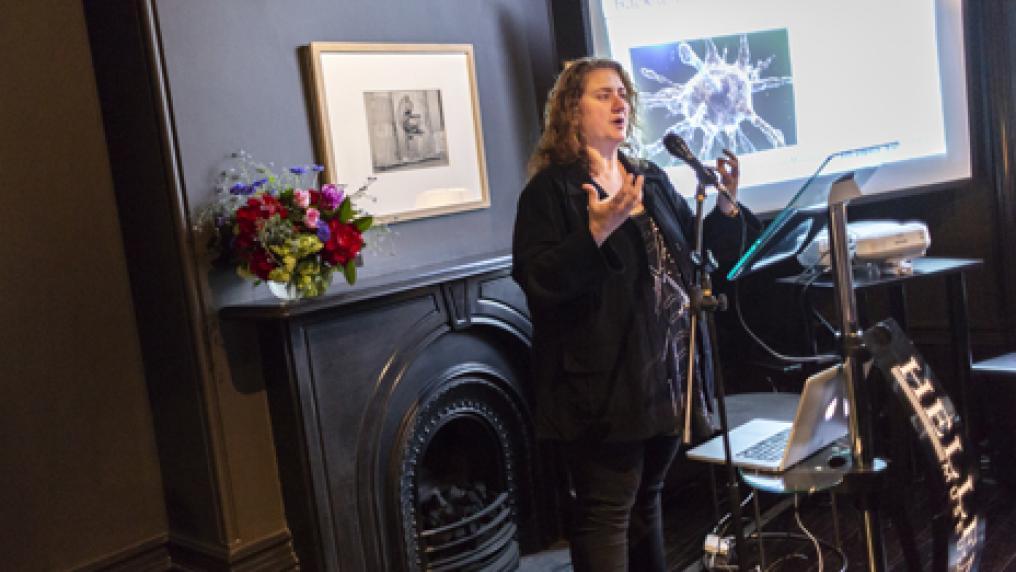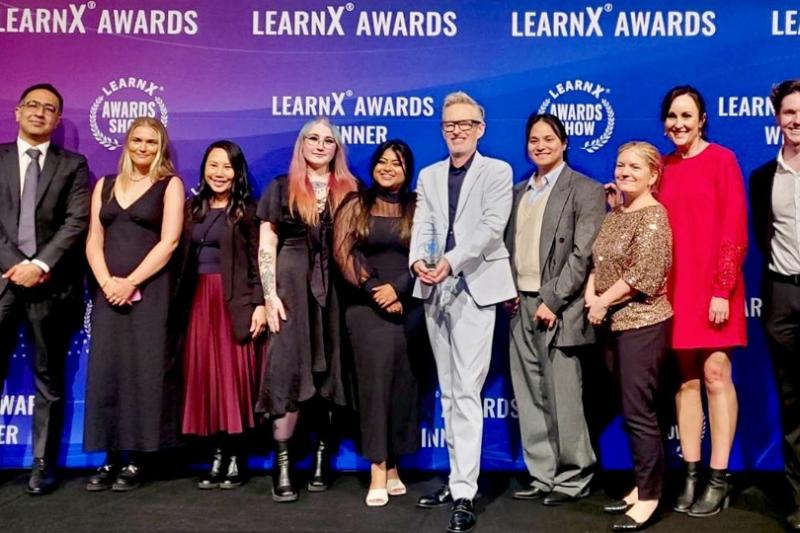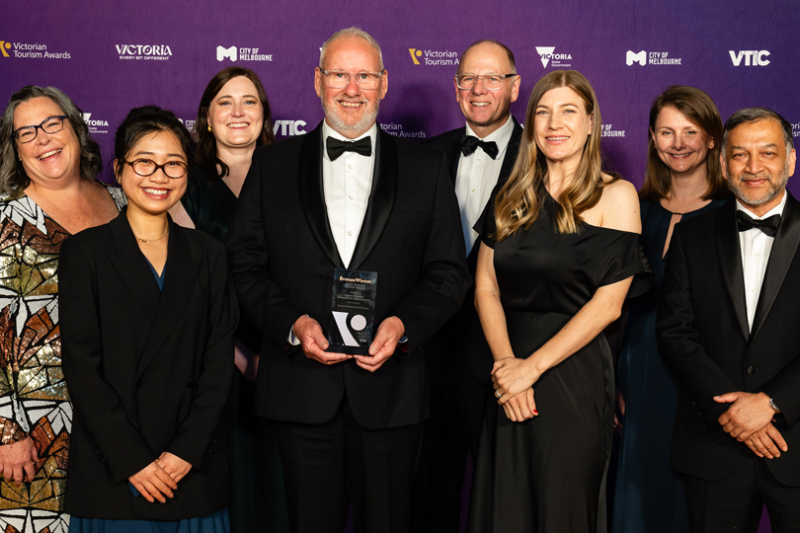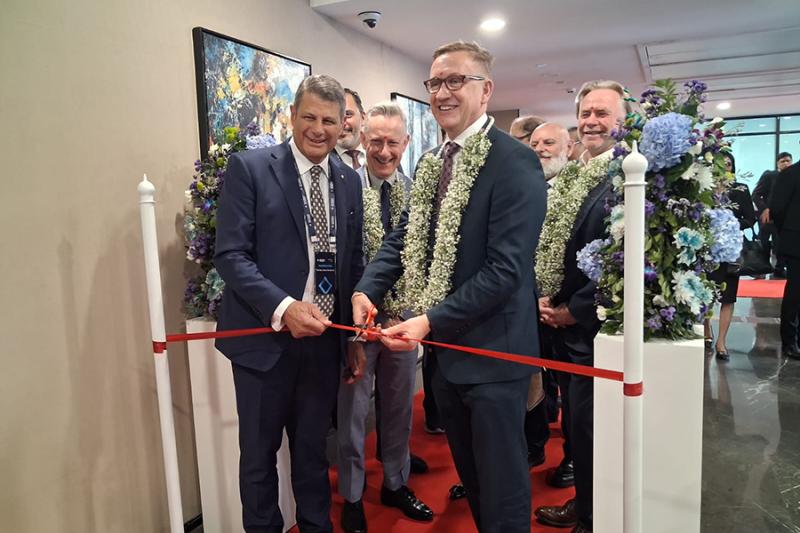World-class researcher says ‘Efharisto’ to Melbourne’s Greek community

Victoria University’s new acting Vice-President of Research is optimistic that the cancer-fighting vaccines she's spent decades developing will soon be routinely administered to cancer sufferers.
“That is my dream,” said Professor Vasso Apostolopoulos.
“We are getting closer all the time to finding viable, achievable ways to fight cancer and other diseases.”
But Dr Apostolopoulos says her important work would not have been possible without major contributions and support from Australia’s Greek community.
“Much of my research has relied on the Greek community really getting behind me,” she said at a public lecture yesterday that brought members of Australia’s Greek and scientific communities together at Melbourne’s impressive Hellenic Museum.
“If it wasn’t for their important fundraising events and donations towards my research over the years, we wouldn’t be at this stage with the vaccines.”
Dr Apostolopoulos developed the world’s first breast cancer and ovarian cancer vaccines in the 1990s, which are both now in the commercialisation stage.
Her research focuses on immunotherapy, systems that harness the power of the body’s immune system to identify and destroy cancer cells. She has received more than 100 honours and awards worldwide (including an award for global achievement last month from the president of Greece), published more than 300 papers and books, and is inventor of 17 patents.
Dr Apostolopoulos said her grandfather’s early death from a brain tumour prompted her interest in researching cancer when she began university.
She describes her revolutionary work as “platform technology” that also offers hope in treating and preventing pancreatic, colon, and lung cancer, as well as multiple sclerosis, by “educating” the body’s immune system to improve its own defences.
Dr Apostolopoulos came to Victoria University four years ago from the Austin and Burnet Research Institutes, after working around the world including at Oxford University and the Scripps Institute in San Diego.
She said she chose to work at VU because of its welcoming culture and the growing opportunities in Melbourne’s west, where she was born and continues to live.
A $1.2 billion hospital announced recently for VU’s Footscray Park Campus is a welcome bonus, and will help make the region a global research centre, she added.



